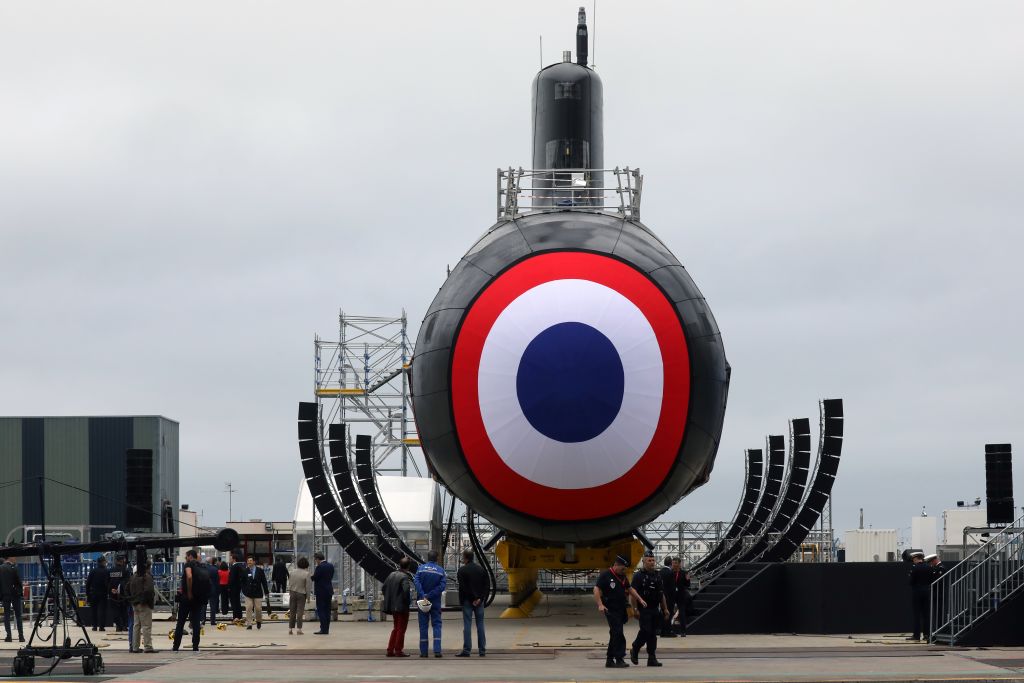
French anger over Australia’s decision to dump the diesel–electric submarine project is entirely justified and understandable. Even if, as some argue, the project’s inadequacies were increasingly apparent, there seems little doubt that Australia seriously misled France’s Naval Group, with whom it had contracted to build 12 conventional Shortfin Barracuda submarines.
The surprise Australian decision to instead acquire nuclear-powered submarines from the US and UK under the new AUKUS agreement will damage diplomatic and trade relations with France, further delay the acquisition of new Australian submarines, and also prove extremely expensive.
But while the French complaints of backstabbing, betrayal and duplicity may embarrass Australia and harm its global reputation, the Australian decision was ultimately dictated by two concepts historically familiar to France:
raison d’état and the balance of power. France was arguably the first state to discover and to deploy these concepts in its international relations.
Simply stated,
raison d’état justifies foreign policy actions based on the primacy of the abiding national interest in survival—especially when a nation abandons openness and honesty. Balance of power involves a nation or a group of nations combining to match the power of potentially hostile adversaries. The idea is to create an equilibrium, however unstable, to help improve security and ensure survival.
Australia has always sought security in powerful alliances intended to balance and deter potential adversaries. The defence of the nation-state has always been the gravest responsibility of Australian statecraft. In recent years, the rise of an increasingly aggressive, expansionist and militaristic China has confronted Australia with serious concerns about its peace, stability and long-term survival in the Indo-Pacific.
Raison d’état and the balance of power have inevitably become more visible principles dictating Australian policies.
The 2016 decision to acquire the French-designed conventional submarines was progressively challenged by China’s aggressive activities in the South China Sea, its ruthless suppression of Hong Kong democracy, its threats against Taiwan and its South Pacific expansionist ambitions. China already has a large and partly nuclear-propelled submarine fleet and a formidable surface navy. Its activities have raised real and reasonable concerns about freedom of navigation and open sea lines of communication in the region.
Australia’s move into the AUKUS partnership with the United States and the United Kingdom, as well as its decision to dump the conventional submarine project in favour of nuclear submarines, was dictated entirely by the imperative of balancing Chinese power by acting according to the demands of
raison d’état. It was a momentous policy shift entirely dictated by the policies and attitudes of Chinese President Xi Jinping.
While French leaders are directing their anger at Canberra, they might, in the interests of historical fairness, acknowledge the powerful French origins of
raison d’état and balance-of-power policies in international relations. In his magisterial 1994 volume
Diplomacy, former US secretary of state Henry Kissinger notes that it was the French statesman Cardinal Richelieu who ‘promulgated the concept of
raison d’état and practiced it relentlessly for the benefit of his own country’.
Richelieu, Kissinger notes, said that nation-states received credit not for doing what was right but for being strong enough to do only what was necessary. Australia decided, quite reasonably, that China’s behaviour had forced it to do what was necessary to ensure the adequacy of its future submarine fleet by opting for nuclear propulsion—even if France didn’t think it right. In short, the end justified the means.
It is of course uncertain whether Canberra’s decision will eventually produce a balance-of-power equilibrium. Pursuit of
raison d’état can, as Kissinger writes, lead to a quest for primacy. China’s quest for primacy is what has pushed Australia into AUKUS and towards nuclear-powered submarines.
Kissinger asks the key question: how far would one go before the interests of the state were deemed satisfied? Will nuclear arms eventually follow Australia’s move to nuclear propulsion? Will Australia’s embrace of
raison d’état threaten what Kissinger calls ‘self-destructive tours de force’. We simply cannot know, but Canberra had little choice in the current strategic environment even if it unceremoniously dudded France. It can only plead that France and its great cardinal were very good role models indeed.
Some Australians, offended by recent French insults, have responded by evoking Australia’s sacrifices on the Western Front in France during World War I. This is tantamount to adolescent name-calling. Australia saw the empire of which it was part threatened with destruction during the 1914–1918 war. So it was an enthusiastic belligerent acting for its own
raison d’état.
We are still all playing the same old survival and stability game, and sometimes we can callously hurt good friends.
 Print This Post
Print This Post